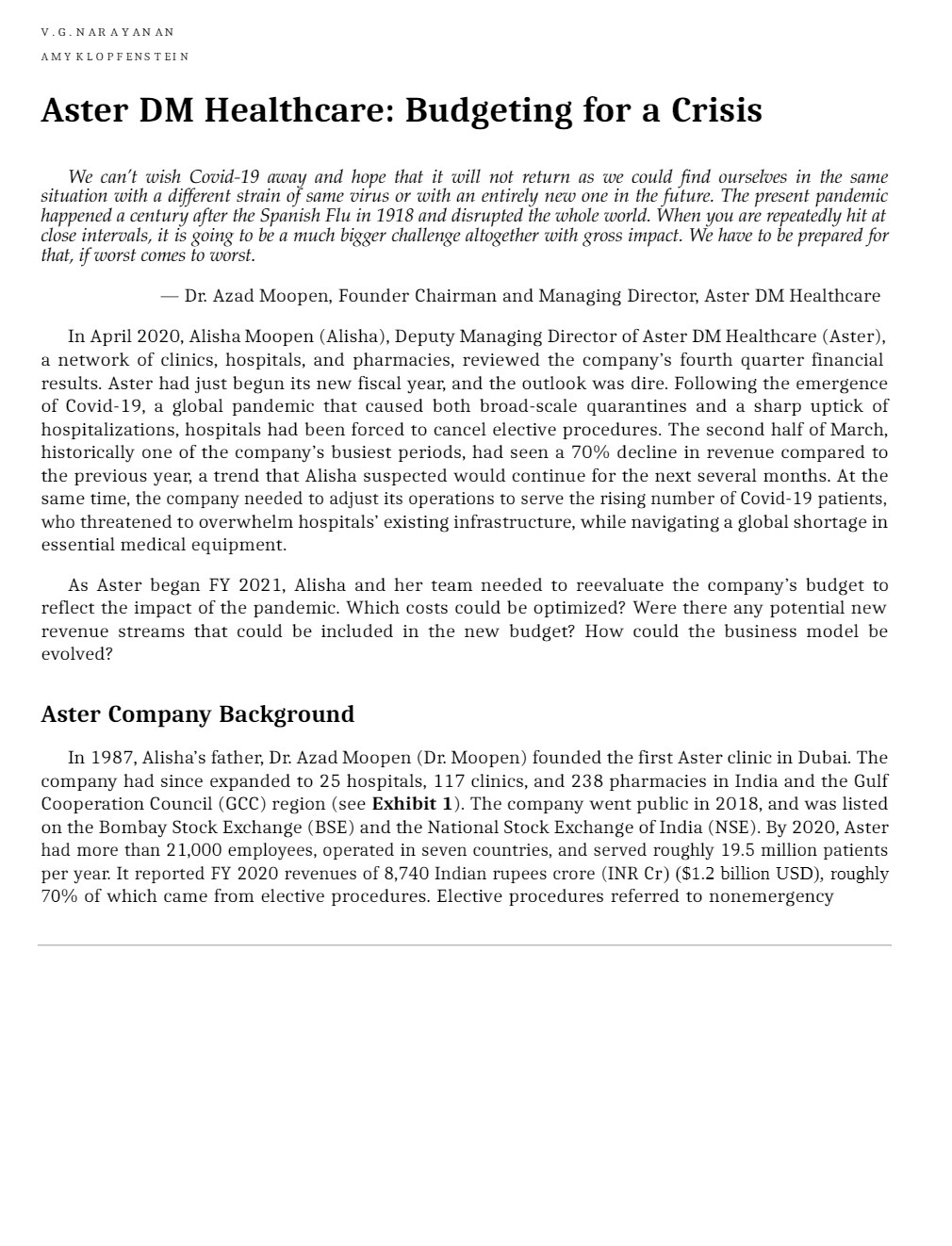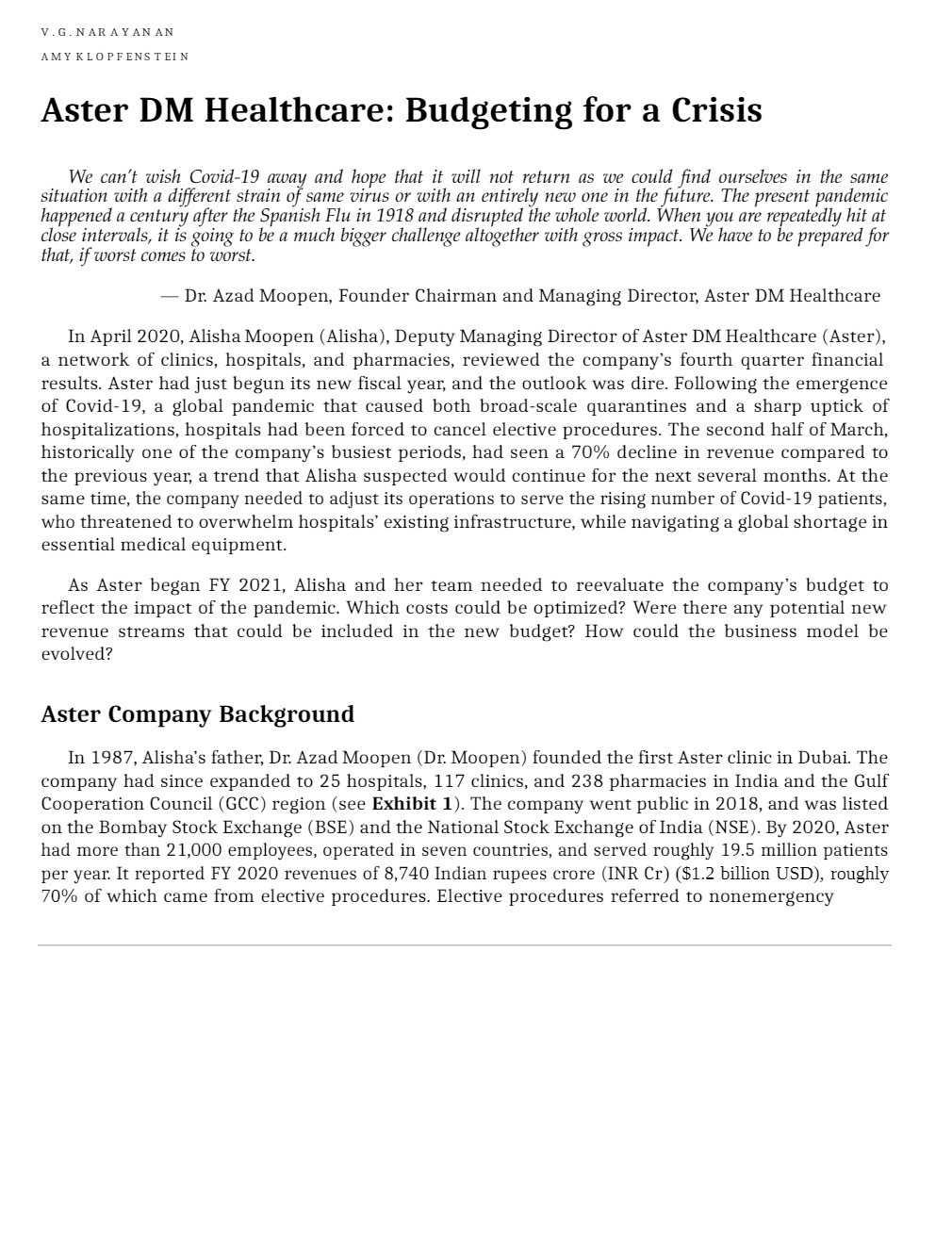
V . G . NARAYAN AN AMY KLOPFENSTEIN Aster DM Healthcare: Budgeting for a Crisis We can't wish Covid-19 away and hope that it will not return as we could find ourselves in the same situation with a different strain of same virus or with an entirely new one in the future. The present pandemic happened a century after the Spanish Flu in 1918 and disrupted the whole world. When you are repeatedly hit at close intervals, it is going to be a much bigger challenge altogether with gross impact. We have to be prepared for that, if worst comes to worst. - Dr. Azad Moopen, Founder Chairman and Managing Director, Aster DM Healthcare In April 2020, Alisha Moopen (Alisha), Deputy Managing Director of Aster DM Healthcare (Aster), a network of clinics, hospitals, and pharmacies, reviewed the company's fourth quarter financial results. Aster had just begun its new fiscal year, and the outlook was dire. Following the emergence of Covid-19, a global pandemic that caused both broad-scale quarantines and a sharp uptick of hospitalizations, hospitals had been forced to cancel elective procedures. The second half of March, historically one of the company's busiest periods, had seen a 70% decline in revenue compared to the previous year, a trend that Alisha suspected would continue for the next several months. At the same time, the company needed to adjust its operations to serve the rising number of Covid-19 patients, who threatened to overwhelm hospitals' existing infrastructure, while navigating a global shortage in essential medical equipment. As Aster began FY 2021, Alisha and her team needed to reevaluate the company's budget to reflect the impact of the pandemic. Which costs could be optimized? Were there any potential new revenue streams that could be included in the new budget? How could the business model be evolved? Aster Company Background In 1987, Alisha's father, Dr. Azad Moopen (Dr. Moopen) founded the first Aster clinic in Dubai. The company had since expanded to 25 hospitals, 117 clinics, and 238 pharmacies in India and the Gulf Cooperation Council (GCC) region (see Exhibit 1). The company went public in 2018, and was listed on the Bombay Stock Exchange (BSE) and the National Stock Exchange of India (NSE). By 2020, Aster had more than 21,000 employees, operated in seven countries, and served roughly 19.5 million patients per year. It reported FY 2020 revenues of 8,740 Indian rupees crore (INR Cr) ($1.2 billion USD), roughly 70% of which came from elective procedures. Elective procedures referred to nonemergency








